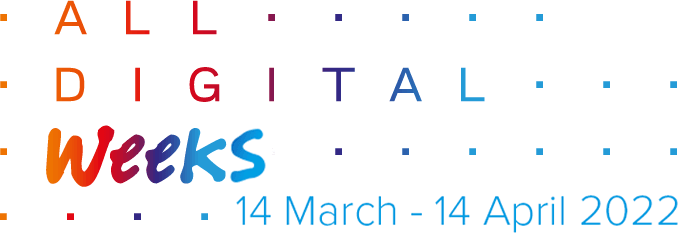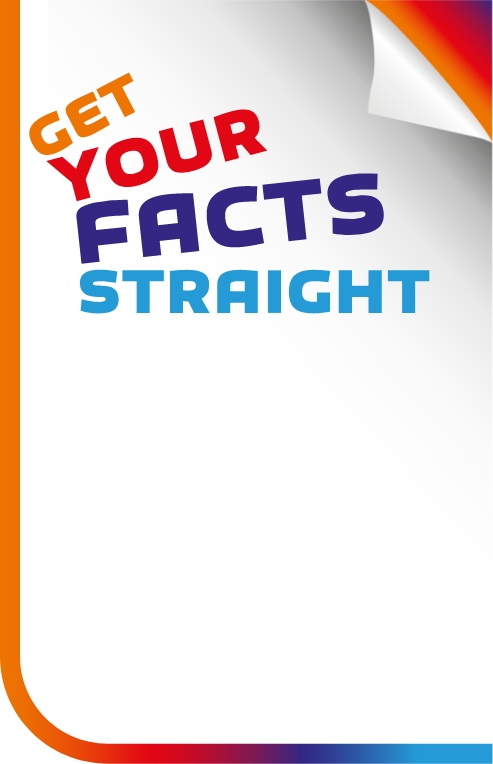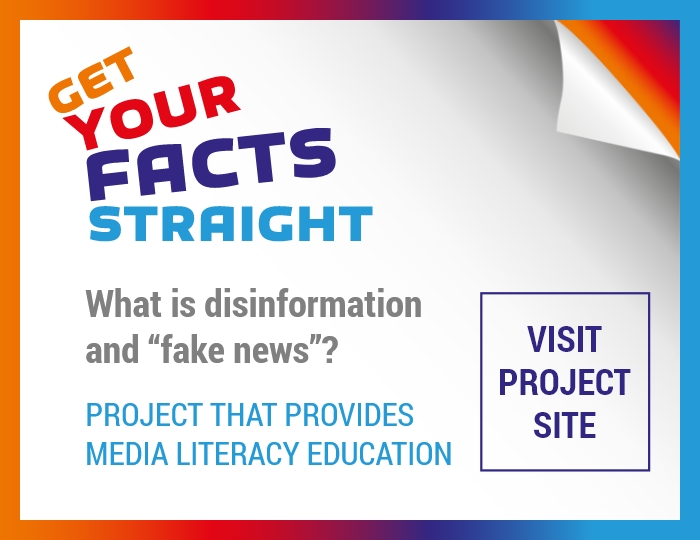USEFUL TOOLS AND RESOURCES
Stay connected: Digital Toolkit
We have collected a list of various useful resources (not training but using digital skills) that may help you to enhance your digital skills from everywhere – free learning courses, supporting educators, elderly relatives, virtual tours, and much more – Check it out.
Below are the tools to improve digital skills
Tests
| Certiport and its partners are committed to providing exceptional learning and testing experiences even amidst the challenges that many schools and businesses are facing as a result of COVID – 19. Certiport partners in participating European countries may provide FREE ACCESS to Ceriport’s web-based learning resources, including online practice exams and on-demand video-based courses to schools and businesses for this semester. To avail of this offer, please contact the Certiport partner in your country. Participating countries include Austria, Denmark, Finland, France, Italy, Ireland, Germany, Norway, Sweden, Switzerland, The Netherlands, UK, and even Australia! Find your provider here | |
| MyDigiSkills helps you to better understand your level of digital skills based on knowledge, skills and attitude in each of the five areas of the European Digital Competence Framework for Citizens, known as DigComp. It should take you around 20 minutes to complete, and you will get a report on your levels of digital skills at the end. | |
 |
Online Collaboration Skills Barometer: a free self-assessment test to help users evaluate their knowledge about online collaboration. Users can test their skills and knowledge in three areas: general knowledge about online collaboration tools, webinars, and mobile collaboration tools. Available in five languages: EN, DE, EE, LV, LT |
| Phishing Quiz: Think you can Outsmart Internet Scammers? Ever wonder how good you are at telling the difference between a legitimate website and one that’s a phishing attempt? Take this quiz to find out. |
Training and Learning
Basic Web Literacy / Intermediate Web Literacy
| IC3 Digital Literacy Certification: whether you plan to pursue a career in IT, or simply become more effective with technology, the IC3 Digital Literacy Certification is your solution. With learning and practice solutions, assessment tools, and certifications specifically designed for a variety of ages and occupations, the IC3 Digital Literacy program is a great way to ensure that students and employees are prepared to succeed in a technology-based world. | |
 |
IC3 Digital Literacy Certification and DigComp discover IC3 Digital Literacy, what it is, and how it aligns to the European Commission’s Digital Competence framework – DigComp. |
 |
Microsoft Learn offers a comprehensive collection of training options that empower technical professionals to learn in a style that fits best, allowing users to advance technical skills while earning achievements and/or preparing for Microsoft Certifications. |
 |
Guide to use Europeana collections in education: Europeana is Europe’s digital platform for cultural heritage. It provides free online access to nearly 60 million digitised items drawn from over 3,500 museums, archives, libraries and galleries across Europe. Around 20 million of our collections are openly licensed and suitable for education. The guide introduces the basic principles of searching for and using Europeana’s content in education. It is of use to educators across all subjects, students and lifelong learners, developers of educational resources and educational publishers. |
 |
Teaching with Europeana: Practical examples to immediately use Europeana collections in your pedagogical activities. There you will find ready-to-use material, designed by teachers across Europe, that any educator can easily adapt to train their students’ media literacy and digital skills. You can create meaningful educational experiences with the ‘Vintage VR’ or the ‘Changing role of women in the early 20th century’ learning examples. |
 |
Methodology: Using digital media for youth engagement and active citizenship: aimed at a non-formal training course based on blended learning. The main part is implemented as face-to-face activities and includes four interrelated digital media modules (or workshops): – Digital Journalism; – Digital Photography; – Digital Storytelling; -Online Platforms, in which refugee crisis was the main theme. The methodology can be applied to any other “hot” societal topic that young people are faced with. |
 |
Cisco NetAcad: is an IT skills and career building program and platform to take and give courses. For telecentres, relevant courses include the Get Connected Course (basic), IT essentials (IT technician) and Internet of things (no prior knowledge required) |
 |
HP Life: HP LIFE e-Learning is a free, online training program designed for students, entrepreneurs, and small-business owners to develop their IT and business skills |
| |
The Web We Want: a handbook for young people to learn about their rights online, data privacy, test skills, share ideas, and create tips and tools about the online world |
| |
Safer Internet: a network of national awareness centers that implement awareness and educational campaigns about creating better Internet with a flagship event ‘Safer Internet Day’ happening every year |
| Media Information Literacy: international, multimedia, multi-language teaching resources on media and information literacy (MIL). Check 12 Modules on various aspects of MIL: from understanding the news and media to freedom of expression toolkit. This resource is part of the UNESCO MIL CLICKS initiative | |
 |
Be Strong Online: contains free resources on ten topics covering digital issues like cyberbullying, social media, online privacy, selfies, gaming and much more! This programme empowers young people to be positive role online models to their peers and to help their peers navigate the online world safely. |
 |
Learn My Way from our National Partner Good Things Foundation: an open learning platform specifically for people with low digital confidence. It is designed to be used as part of a blended learning programme. It contains 31 online courses, covering a range of topics such as online and mobile banking, online shopping, financial budgeting online, claiming government benefits online. |
Cybersecurity by Europol
 |
Public Awareness and Prevention Guides: Europol’s crime-prevention guides contain information that can help citizens protect themselves and their property. Currently there are 33 guides, including the ones on making your home a cyber safe stronghold, tips on safe remote work, protecting from ticket and holiday fraud, spyware, fake online accounts and apps, money muling, payment card fraud, identity theft, etc. |
 |
Take control of your digital life. Don’t be a victim of cyber scams! One of the guides from the collection above. The materials cover 7 of the most common online financial scams and how the general public can avoid falling victim. All the materials, including infographics, are in English and also translated into over 25 languages . The campaign was promoted as part of the European Cyber Security Month 2018 and was led jointly by the EC3 and the European Banking Federation (EBF). |
| No More Ransom: The “No More Ransom” website is an initiative by the National High Tech Crime Unit of the Netherlands’ police, Europol’s European Cybercrime Centre and McAfee with the goal to help victims of ransomware retrieve their encrypted data without having to pay the criminals. Since it is much easier to avoid the threat than to fight against it once the system is affected, the project also aims to educate users about how ransomware works and what countermeasures can be taken to effectively prevent infection. The site includes both prevention advice and decryption tools. It contains over 60 tools and is available in 35 languages. |
Resources from National Partners
 |
Competition for event organisers: good practice implemented by International Aid Network (IAN). The aim is to motivate local organisations in charge of conducting training/events to be active and organise quality activities and to ensure good material for promotion and visibility/ |
 |
Interactive Internet Safety Event: a 2-hour activity for schoolchildren, developed by “Langas i ateiti”. The aim is to provide the knowledge and skills to primary school children about safer use of internet and technologies: smart devices, safe passwords, online/offline balance, publishing pictures online etc |
 |
Online Safety Workshop for Young People: a 3-hour activity for young people NEETs, developed by “Langas i ateiti”. The main goal is to improve digital skills for job, especially online safety skills, and encourage young people (NEETs) to choose careers in ICT |
| France – AI School: Microsoft and Simplon created the AI School with the aim of training job seekers in artificial intelligence, in order to intensively train the learner in skills related to algorithms, data processing and the use of AI technologies. | |
 |
Ireland – StepIn2Tech: StepIn2Tech is a digital skills training programme developed by Microsoft Ireland, in partnership with FIT, that will equip 10,000 people with the digital skills required to transfer to emerging and in-demand roles within the digital economy. It also supports those who have either recently left school or college or are mid-career and interested in developing their digital skills. |
 |
Italy – Ambition Italy for young people: This program, jointly driven by Fondazione Mondo Digitale and Microsoft Italy seeks to increase and equalize the opportunities for access to digital skills and the overall commitment to support active employment policies, through training and career guidance actions aimed at the most vulnerable workers most affected by Covid-19. |
Resources by Mozilla
 |
Ping Kong: learners discover the infrastructure behind the Internet. This activity challenges learners to think concretely about how the internet communicates with a computer. |
 |
Hack the News: learners remix any existing webpage using code. By using X-Ray Goggles, a tool that makes it easy to see and remix the code behind your favorite web pages, you remix a news website while learning about openly-licensed resources and different forms of media. You will learn how to code, compose, remix, and share. |
| Project Playlist: learners embed media into a webpage. Learners will build a playlist of songs from the Open Web, learning composing, remixing, searching, and sharing. | |
 |
Who am I?: Learners will conduct a reverse image search to find information about a subject online and then revise a webpage with their own text and images, learning composing, navigating, searching, and sharing. |
 |
CSS Code Blocks: using CSS to change the color and display of a webpage. Learners will position and style boxes on a webpage using CSS while learning about coding, composing, designing. |
 |
Buttons & Alerts: Learn how to code, compose, remix, and revise by connecting HTML, CSS, and JavaScript by using buttons and scripts to tell a story. |
 |
Simple Story Generator: using CSS, JS, and HTML to randomly generate a story. Learn how to use arrays and the document method to generate random stories and add them to a webpage. |
























